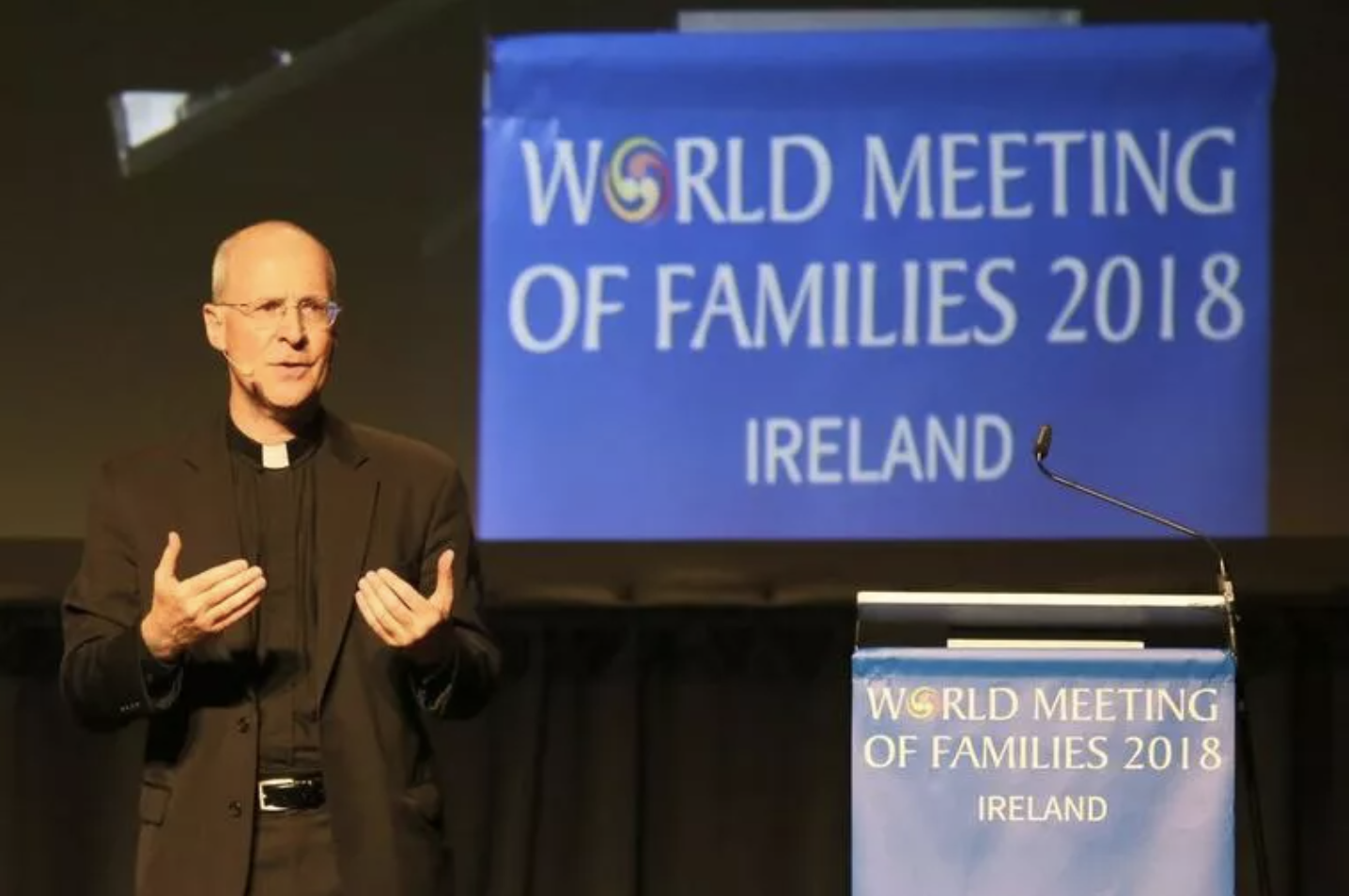Father James Martin Receives a Papal Clarification — and in Record Time
National Catholic Register, 02 February 2023
As Cardinal Pell, Bishop Bätzing and others would testify from different perspectives, papal interview controversies are not rare, but rarely corrected.
SYDNEY — Cardinals, bishops and venerable prelates may be distressed by Pope Francis on occasion. They just have to accept their lot; Francis is pope, like it or not.
When Jesuit Father James Martin is not happy, though, he does not have to take it. Word is sent to the Holy Father. The Holy Father gets the message and corrects course. Father Martin is thus, by the Holy Father’s own choice, the living emblem, the pastoral model, the face of this Jesuit pontificate. The Holy Father is content to allow Cardinal Raymond Burke to wait more than six years for a response to his dubia about Amoris Laetitia. Father Martin does not have to wait six hours.
Consider a recent papal interview, which received significant criticism from liberal Catholics — contrary to the usual story that such criticism comes from conservatives — like the late Cardinal George Pell.
Soon after the death of the late Cardinal George Pell, the “Demos” memorandum from early 2022 got a new airing, as the Italian journalist who published it, Sandro Magister, revealed that Cardinal Pell had a central, if not exclusive, role in it.
“Demos” — meaning “people” in Greek — was a critique of the pontificate of Pope Francis that circulated among some cardinals.
“Commentators of every school, if for different reasons … agree that this pontificate is a disaster in many or most respects; a catastrophe,” the Demos memorandum began.
Given that Cardinal Pell was a stalwart defender of Catholic orthodoxy, it was widely assumed that “Demos” was really a conservative critique of the Holy Father, not representative of “commentators from every school.”
“Demos” proved to be right again last week, after Pope Francis gave an interview to the Associated Press. The Holy Father denounced the German “Synodal Way” as neither “helpful nor serious” and an “elitist” exercise. The Germans were not pleased, and their episcopal conference president delivered a fierce response.
Calling the Holy Father’s “way of leading the Church by way of interviews” as “extremely questionable,” Bishop Georg Bätzing, the president of the German bishops’ conference, blasted Pope Francis for the practice, a hallmark of his teaching style.
“Why didn’t the pope talk to us about this when we were with him in November?” Bishop Bätzing asked, referring to the German ad limina visit. “There would have been the opportunity, but he did not take the opportunity for discussion then.”
Actually, the Holy Father did meet the German bishops, and three senior cardinals had another meeting at which the Germans were told that their “Synodal Way” was simply not Catholic in major respects.
Bishop Bätzing clearly did not like what he heard then, and did not care to be subjected to a patented Pope Francis on-the-fly interview attack. It might be a new experience for the Germans, but hardly new to this pontificate. Indeed, as “Demos” argued, commentators of all schools have lamented governing the Church by press interviews. Bishop Bätzing went further though, taking a frontal shot at the entire synodal project of Pope Francis, the heart of his pontificate.
“[Pope Francis understands synodality] as a broad gathering of impulses from all corners of the Church, then bishops discuss it more concretely, and in the end, there is one man at the top who makes the decision,” said Bätzing. “This is not the kind of synodality that is viable in the 21st century.”
Whenever a synod process has wandered away from Catholic orthodoxy, Pope Francis has assured everyone not to worry because everything proceeds cum Petro et sub Petro (with Peter and under Peter). That is not a feature, but a bug, the Germans now say. They would prefer to operate without Peter — or at least, without how this Peter operates.
The Germans were not the only liberals upset about the AP interview.
Pope Francis spoke about homosexuality, saying that it was not “a crime” and should not be treated by governments as a criminal offense. Father James Martin was delighted about that, writing widely of his approval.
Continue reading at the National Catholic Register.
